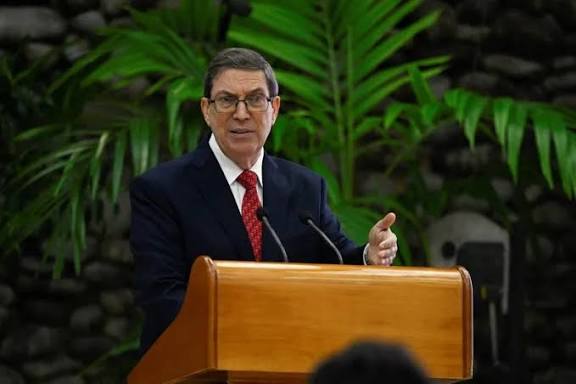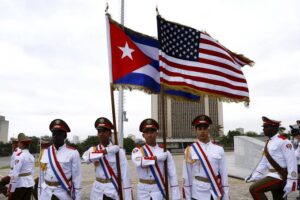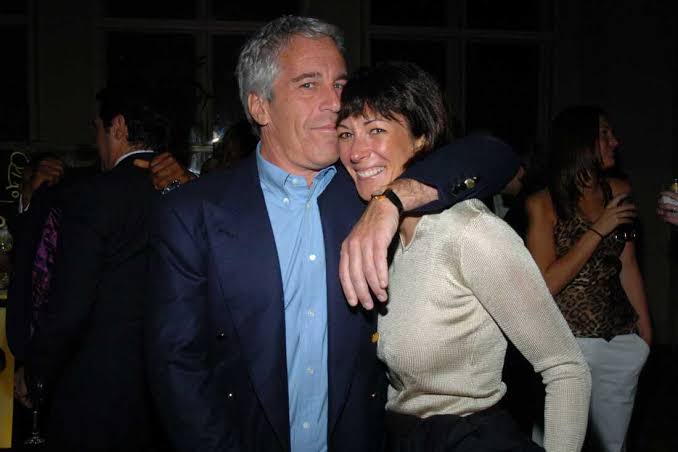Cuba Demands UN Action: Is US Militarization Threatening Peace in the Caribbean

Cuban Foreign Minister Bruno Rodriguez asked the United Nations to stop the war in Caribbean. Today we will discuss about Cuba Demands UN Action: Is US Militarization Threatening Peace in the Caribbean
Cuba Demands UN Action: Is US Militarization Threatening Peace in the Caribbean
In September 2025, Cuba’s Foreign Minister, Bruno Rodríguez, issued a public appeal to the United Nations General Assembly and the UN Security Council, urging them to intervene in what Havana describes as aggressive militarization by the United States in the Caribbean. This call is part of a broader campaign by Cuba to gain international support against both the US’s trade embargo and what it perceives to be continuous threats to regional stability. But what exactly is the nature of Cuba’s demands? What actions are being taken by the U.S.? And do these actions genuinely threaten peace in the Caribbean, or are they defensive or lawful measures under the guise of national security and combating crime?
This article explores:
The recent US military deployments in the Caribbean and related actions
Cuba’s claims and demands at the UN
Legal, political, and geopolitical contexts
Perspectives for and against the idea that US militarization threatens regional peace
Possible UN responses and their feasibility
What has triggered Cuba’s demand?

Cuba’s accusations and request for UN intervention stem from a series of events and shifts in US policy:
US Military Strikes and Actions on the High Seas
Cuba has condemned a number of recent military operations by U.S. forces in the Caribbean, including missile strikes on small vessels that the U.S. claims were involved in drug trafficking. Cuba asserts that some of these incidents resulted in civilian casualties, destruction of vessels without due process, and violations of international maritime law.Expanded Naval, Air, and Marine Presence
The U.S. has significantly increased its military presence in the Caribbean. For example, multiple warships, coast guard cutters, and amphibious ships carrying thousands of marines have been deployed. Some vessels are equipped with long-range missiles (e.g., Tomahawks), which raises concerns about possible land-target capability. Analysts have called this the largest U.S. naval deployment in the region since 1965.Drug Trafficking Pretext & “Narcoterrorism”
The U.S. has increasingly framed certain operations as part of “counter-narcoterrorism,” alleging that groups in Venezuela are acting as narco-organizations that justify cross-border military or paramilitary action. Cuba sees this framing as deeply problematic, often lacking transparent evidence, and argues it could serve as a pretext for broader intervention.Alleged Violations of Sovereignty and Regional Agreements
Cuba also cites that U.S. actions violate the idea of a Zone of Peace, which was declared by the community of Latin American and Caribbean states (CELAC) in 2014. The deployment of U.S. forces, naval assets, and use of force in Caribbean waters are seen as infringing on sovereignty and disturbing stability.Longstanding Tensions Including Sanctions and Embargo
While militarization is more recent, it is part of a broader context of U.S.-Cuba relations marked by decades of embargo, trade restrictions, and diplomatic strife. Cuba argues that the militarization is another strand in a policy of coercion.
Cuba’s Demands at the UN
Based on statements by Bruno Rodríguez and official Cuban government sources, here are the main demands:
UN General Assembly and Security Council Action
Cuba is urging both bodies to act under their mandates (peace preservation, conflict prevention, upholding sovereignty) to address what it terms aggressive U.S. militarization. Specific demands include condemnation of military strikes, the deployment, and perhaps motions to censure or constrain operations that violate international law.An International Resolution Against Militarization
Cuba wants a resolution that would explicitly call for the United States to scale back military buildup, cease extrajudicial actions at sea, stop using drug trafficking pretexts to justify force, and respect regional legal norms and sovereignty. This may be parallel to earlier UN resolutions condemning the embargo.Reaffirmation of the Caribbean as a Zone of Peace
Restoring and enforcing the Zone of Peace status, holding countries, particularly the U.S., accountable to regional agreements and declarations.International Law and Norms Compliance
Cuba calls for adherence to international maritime law, human rights laws, rules governing use of force (especially at sea or in foreign territory), and respect for due process. They also want investigations into incidents in which civilians were allegedly harmed.Lifting the Embargo / Sanctions
Though more longstanding, the embargo remains part of Havana’s grievances. The militarization argument is connected with the broader claim of economic pressure and coercion. Cuba expects UN support in lifting or easing these sanctions.
Legal & Geopolitical Analysis
To assess whether the U.S. actions constitute a real threat to peace, as Cuba claims, it’s essential to consider international law, regional norms, strategic interests, and counterarguments.
International Law Considerations
United Nations Charter
The UN Charter prohibits the threat or use of force against the territorial integrity or political independence of any state (Article 2.4), except in self-defense or when action is authorized by the Security Council. U.S. claims that its actions are to counter drug trafficking must be measured against whether the U.S. is acting lawfully under these exceptions. If a vessel is in international waters and undermining illicit trade or representing a threat, there might be legal basis—though it’s often murky. Cuba and UN experts argue many recent actions do not meet the legal preconditions for use of force.Law of the Sea and Maritime Rights
Laws around interception, use of force on vessels, and rights of passage are governed by treaties (UNCLOS, among others) and customary international law. There are strict rules about when states can board/intercept vessels, especially when those vessels are not part of an armed conflict or not clearly under suspect. Cuba and UN experts claim U.S. actions have violated some of these standards.State Sovereignty & Territorial Integrity
If U.S. operations involve entering another country’s territorial waters, or targeting state-linked vessels without invitation or agreement, this could violate sovereignty. Even action on the high seas raises issues if it affects a state’s rights or involves non-state actors in foreign territory.Human Rights / Extrajudicial Killings
International human rights law (including treaties and UN instruments) protects the right to life. Attacks that result in death without judicial process are highly controversial—especially if civilians are involved. The UN experts mentioned extrajudicial killings related to U.S. actions.
Geopolitical & Strategic Concerns
US National Security vs Regional Sovereignty
The U.S. asserts that these militarized operations are necessary to combat drug trafficking, narco-terrorism, and irregular migration, all which it deems threats to its national security and broader hemisphere stability. Many in the U.S. view the Caribbean as a strategic buffer zone.Inflation of Pretext
Critics argue, including Cuba, that the U.S. is using drug trafficking as a pretext to justify power projection or to put political pressure on certain governments, particularly Venezuela and its allies. Cuba argues that U.S. accusations lack transparency and frequently ignore domestic U.S. demand-side factors and money laundering.Regional Alliances and Responses
Latin American and Caribbean countries are not monolithic. CELAC, ALBA-TCP and other regional entities have expressed concern. At the same time, some states support or tacitly accept U.S. operations, either because of their own security concerns, diplomatic pressures, or in exchange for aid or economic relations. This fractures unified regional responses.Risk of Escalation
With large naval deployments, weaponised platforms (missile-armed vessels, submarines), and military strikes in contested spaces, there is inherent risk of miscalculation, accident, or confrontation. Even if most actions don’t aim for broad conflict, unintended escalation is a genuine concern.
Are These Actions Truly Threatening Peace?
Having laid out both perspectives, it’s helpful to evaluate whether U.S. militarization in the Caribbean is, in truth, a threat to regional peace, or whether much of Cuba’s concern is rhetorical or rooted in political strategy.
Evidence Supporting a Threat to Peace
Scale of Deployment
The deployment of numerous warships, missile-capable vessels, Marines, and the presence of aerial/sea assets increases the risk footprint. If vessels are capable of striking land-based targets (e.g., with Tomahawk missiles) or operating near foreign territory, the potential for conflict or misinterpretation increases.Lack of Transparency & Accountability
Incidents involving civilian casualties or destruction of vessels, especially where evidence is lacking or disputed, erode norms of peaceful behavior. Without transparent investigations or shared legal justification, claims of aggression gain more weight. Cuba and UN experts suggest there have been cases where U.S. justification is opaque.Precedent for Interventionism
Historically, U.S. military interventions in Latin America and the Caribbean (e.g., the Cold War period, Grenada, etc.) have gravely affected sovereignty. Memories of these interventions are part of the regional political psyche. Cuba and its allies warn that current actions could lead to further interventions.Potential Violation of International Law
If U.S. operations violate maritime law, the UN Charter, human rights law, or norms of state sovereignty, they could be unlawful and destabilizing. Legal challenges or international condemnation could follow, increasing tension.
Arguments Undercutting the Threat Claim
Legitimacy of Counter-Narcotics Operations
Drug trafficking has well-documented regional effects—violence, corruption, public health crises—and many governments—including in the U.S.—argue that strong action is required. From this view, U.S. involvement is a response to transnational crime rather than aggression. If operations are strictly law enforcement and comply with international law, threat claims may be overstated.Self-Defense and Bilateral/Multilateral Cooperation
Under some legal interpretations, if criminal organizations are operating from a territory that states are unwilling or unable to address, foreign intervention (especially maritime or aerial in international waters) can be justified under certain treaties or doctrines. The U.S. might argue cooperation with governments or seeking permission.Absence of Full-Scale Hostilities
So far, most U.S. actions have not culminated in large-scale armed conflict or declared war. Some deployments may be deterrents, patrols, intelligence missions, or formed for rapid response. Many countries often conduct military patrols, exercises, or deployments without choosing confrontation.Regional Support for Some US Actions
Some Caribbean or Latin American governments may support or accept U.S. operations (especially ones aimed at drug interdiction or anti-trafficking), seeing benefit in decreased trafficking flow, or obtaining U.S. aid, intelligence sharing, or security cooperation. This can reduce perceptions of U.S. militarization as purely negative.
What Could the UN Do — And What Are the Obstacles?
Given Cuba’s demands, what are the concrete options available through the UN, and what constraints do they face?
Possible UN Actions
Resolutions in the General Assembly
The UN General Assembly (UNGA) could adopt non-binding resolutions condemning the U.S. militarization, supporting Cuba’s claims, reinforcing regional norms (e.g., “Zone of Peace”), and calling for respect for maritime laws and sovereignty. Such resolutions carry moral and diplomatic weight but are not enforceable.Security Council Action
The UN Security Council could, in theory, take stronger action—debates, condemnation, possibly peacekeeping or mediation initiatives. However, since the U.S. is a permanent member with veto power, it is highly unlikely to support or allow resolutions that strongly limit or condemn its military operations.International Inquiry or Fact-Finding Missions
The UN Human Rights Council or special rapporteurs could launch investigations into alleged extrajudicial killings, maritime violations, civilian harm, etc., to establish facts. These would help build legitimacy for any condemnations or legal claims.Regional Multilateral Forums
While outside direct UN mechanisms, bodies like CELAC, ALBA, CARICOM, Organization of American States (OAS) could join in calling for UN engagement or produce regional resolutions. Combined regional pressure can influence international public opinion and diplomacy.Legal Proceedings or Advisory Opinions
International courts (e.g. International Court of Justice) or the International Tribunal for the Law of the Sea may get invoked (if states agree), to seek contentious jurisdiction or advisory opinions. But these require legal standing and state consent, which may be complicated.Diplomatic Pressure / Mediation
The UN secretary-general or other actors might offer mediation between Cuba (and its allies) and the U.S. to reduce tensions, establish communication channels, and agree on rules for confrontations at sea.
Constraints & Challenges
U.S. Veto Power in Security Council
Any strong Security Council resolution is almost impossible without U.S. support, given its veto power.U.S. Domestic Politics and Policy Framing
U.S. policymakers often frame their Caribbean military actions as necessary for national security, drug control, migration, etc. Changing that framing domestically may be difficult.Lack of Unified Regional Response
Countries in Latin America and the Caribbean have varying stances. Some may prioritize security cooperation, others sovereignty. Without unity, regional pressure is diluted.Evidence & Legal Proof
To successfully make legal or normative claims, credible evidence (e.g. of ensued civilian harm, violation of law, cross-border overreach) is required. Disputed narratives and lack of transparency may hamper this.Non-binding Nature of Many UN Resolutions
Even if the UNGA passes a resolution, or special rapporteurs issue findings, enforcement is weak. UN mechanisms are effective mainly when member states cooperate.
Broader Implications
Cuba’s demand and the U.S. militarization have implications beyond immediate bilateral tensions:
Norm Setting in International Law
How states interpret “counter-narcoterrorism,” extrajudicial force, and sovereignty in maritime zones will affect norms in other regions (e.g., Southeast Asia, Africa) where drug trafficking or non-state threats cross borders.Precedent of Great Power Conduct
If large powers are allowed, with minimal pushback, to expand militarily under pretexts like fighting crime, it may embolden similar behavior elsewhere, eroding norms of restraint.Regional Stability & Refugee / Migration Flows
Military operations, especially if they escalate or result in civilian harm, may worsen migration pressures. They can destabilize governments seen as targeted, triggering political or economic displacement.Economic & Humanitarian Costs
Militarization is expensive. For small Caribbean states, aligning with or opposing U.S. actions may carry economic and diplomatic costs. Meanwhile, sanctions and embargoes (which Cuba is especially concerned about) have direct humanitarian impacts.
Conclusion: Is Peace Threatened?
Putting together the evidence, legal frameworks, and political dynamics, the following assessment emerges:
Yes, there is a credible threat to peace in terms of risk of miscalculation, sovereignty violations, and erosion of legal norms. Deployments and strikes without transparent justification, civilian harm, and the expansive framing of drug trafficking as warrant for military operations raise serious concerns.
However, it is not yet at the level of outright war or large-scale armed conflict. Much of the U.S. activity, while aggressive-looking to critics, is consistent with stated policy goals of counter-narcotics. Whether those goals justify the methods is contested.
The question of legitimacy is pivotal. If U.S. operations are lawful, proportionate, transparent, and with respect for regional and international norms, then they may still be tolerated by the international community—though with criticism. If not, they risk isolation, legal challenges, diplomatic fallout, and escalating tensions.
Recommendations & What to Watch
For Cuba and allies, and for the UN:
Collect reliable evidence of alleged violations (civilian harm, illegal use of force) and make it available to independent investigators or international bodies.
Engage with other Caribbean and Latin American governments to build a coalition for regional peace, emphasizing the Zone of Peace and shared sovereignty.
Push for UN Human Rights Council hearings or special rapporteur attention to maritime law compliance.
Consider legal actions via international maritime tribunals or courts, if applicable.
Monitor U.S. deployments: number of vessels, locations, armament, engagement rules.
For the United States:
Increase transparency of its operations and legal justifications for maritime interdictions, strikes, and deployments.
Engage diplomatically with regional governments about concerns; perhaps negotiate protocols for operations in regional waters.
Ensure that operations comply with international law, including protections for civilians and clear lines of responsibility.
If I were to summarise: Cuba’s demands before the UN are not merely rhetorical. They reflect real shifts in U.S. military posture that do pose risks—legally, geopolitically, and morally—to peace, sovereignty, and regional stability in the Caribbean. Whether or not the UN acts decisively will depend on factors including evidence, regional unity, geopolitical balance, and whether the U.S. continues or escalates its current course.
How useful was this post?
Click on a star to rate it!
Average rating 0 / 5. Vote count: 0
No votes so far! Be the first to rate this post.
About the Author
usa5911.com
Administrator
Hi, I’m Gurdeep Singh, a professional content writer from India with over 3 years of experience in the field. I specialize in covering U.S. politics, delivering timely and engaging content tailored specifically for an American audience. Along with my dedicated team, we track and report on all the latest political trends, news, and in-depth analysis shaping the United States today. Our goal is to provide clear, factual, and compelling content that keeps readers informed and engaged with the ever-changing political landscape.




